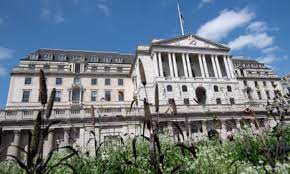
The Bank of England is facing renewed pressure to raise interest rates in the coming month, spurred on by an unexpected surge in wages during June. This boost in wages was primarily driven by a one-time payment granted to NHS workers.
Despite the rise in borrowing costs, the most recent data from the UK labor market indicated that employers had begun to reduce their workforce as a response to a slowdown in economic activity.
In a report released by the Office for National Statistics (ONS), it was revealed that total pay, including bonuses, experienced a year-on-year increase of 8.2% during the three months leading up to June. This figure surpassed the 7.3% that analysts had anticipated.
Regular pay, which excludes bonuses, also saw an uptick of 7.8% during the quarter. This marked the highest annual growth rate in regular pay since records began in 2001, rising from 7.5% in the period of March to May.
Amid concerns that rising wages could trigger a cycle of increasing prices, Chancellor Rishi Sunak emphasized his commitment to curbing inflation. He expressed optimism about the cost of living crisis, noting that there was a positive trajectory ahead.
Addressing the inflation issue, Prime Minister Rishi Sunak commented that it was inflation that was eroding people’s financial well-being, leading to diminished savings and reduced disposable income.
The labor market report also highlighted an increase in redundancies and a rise in the unemployment rate by 0.3 percentage points to 4.2% during the quarter.
Having recently raised the cost of borrowing for the 14th consecutive time, policymakers at the Bank of England have increased the interest rate to 5.25%.
Predictions from the money markets suggest an 84% likelihood of a quarter-point increase in interest rates to 5.5% in September, along with a 16% probability of a larger, half-point increase to 5.75%. These forecasts indicate that interest rates are expected to peak at 6% around February, a higher figure than the previously anticipated 5.75%.
The City consultancy Capital Economics asserted that the acceleration in wage growth lends support to the argument for another rate increase by the Bank of England.
The strongest growth in earnings was observed among workers in the IT sector, those in the financial industry, and in business services such as marketing and advertising. Employees in finance and business services experienced a significant pay increase of 9.4%, while manufacturing workers saw a rise of 8.2%.
Despite calls for a more substantial pay raise for NHS workers, the government granted health staff a 5% increase in addition to a one-time bonus of up to 8.2%.
The TUC general secretary, Paul Nowak, noted that while high earners in the City enjoyed significant pay increases, the majority of workers continued to face real-terms pay constraints.
The forthcoming inflation data and labor market report will be influential in determining whether the Bank of England will proceed with another rate increase in its upcoming September meeting. Chancellor Rishi Sunak expressed confidence in his ability to manage the economy, pledging to reduce inflation and subsequently lower interest rates over time.










Leave a Reply